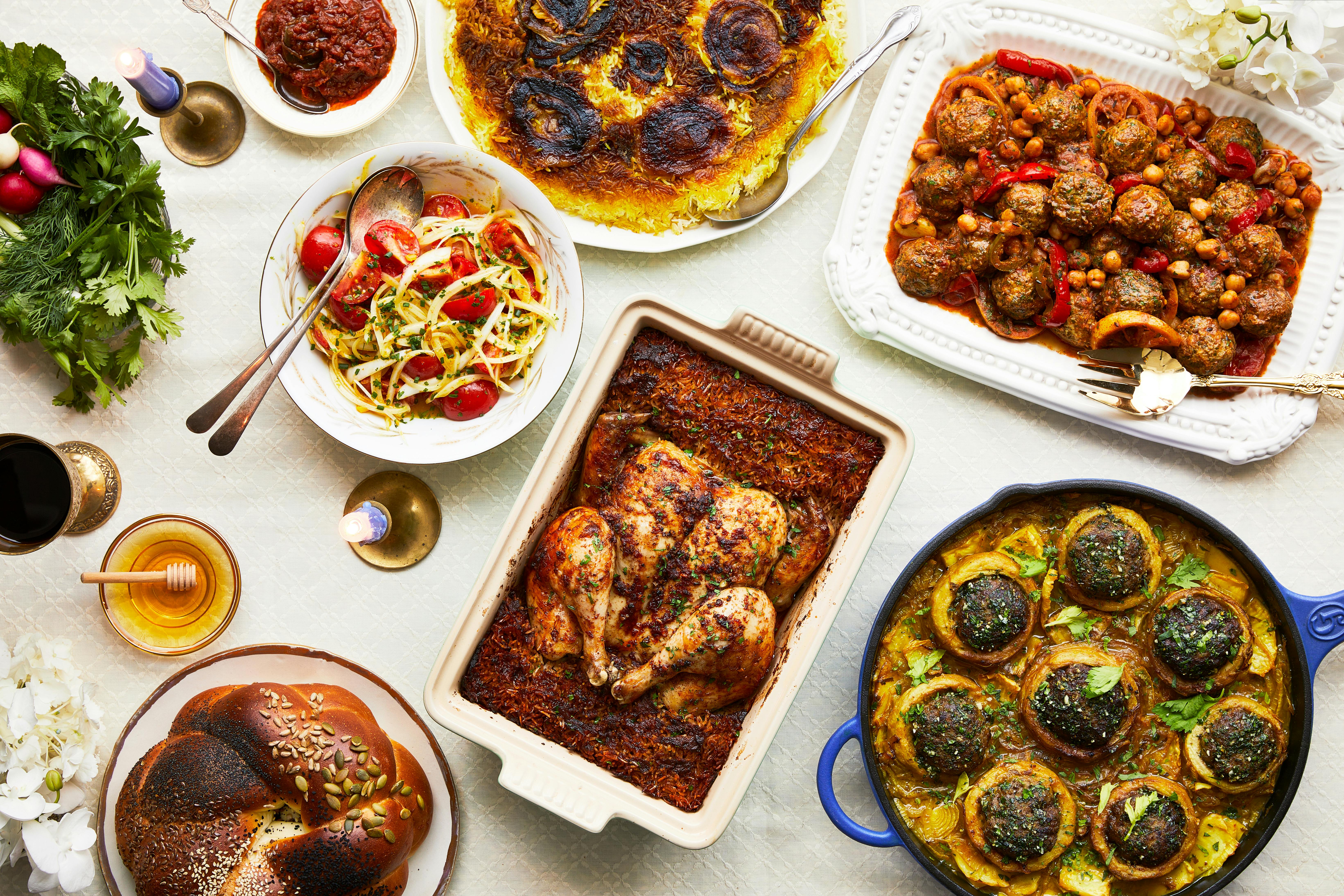Shared by Ruhama Shitrit


When Ruhama Shitrit’s husband Yossi was offered a tech job in Boston 17 years ago, the family packed up their lives in Haifa and moved 5,500 miles. The plan was to come to the U.S. for only two or three years. Recalling the decision recently, the 50-year-old teacher turned beloved Instagrammer says: “Yalla let’s do it — we're going to travel, we're going to see America.”
But when she arrived, Ruhama explains, “I didn’t know anybody. I needed to understand the food, the flavor, the culture, the language. There were so many things I didn’t know — especially the food.”
Born into an Iraqi family, both of her parents cooked often. Her mother Carmela was known for chicken with turmeric and potatoes and her meatballs. While her father, who was the mayor of their town just south of Haifa, also found time to cook. “Shabbat morning was just for my dad,” Ruhama says. He made the Iraqi Shabbat breakfast known as sabich and “it was a big thing,” she adds, stretching out the “i” in big for emphasis echoing the style she’s known for on Instagram.
Even when Ruhama was a young mother, her parents prepared food for her family often, so she didn’t start her cooking journey until she moved away. “I discovered all of my cooking skills here in America,” she notes. In the early years of living here, Ruhama brought ingredients like date syrup back with her in a suitcase, but she also learned to make foods she would typically buy in Israel like challah, and welcomed local ingredients like brussels sprouts into her kitchen. Through her cooking, Ruhama wanted to connect her four kids to their homeland and family.
A generation earlier, in 1962, her mother Carmela had to find her way in a kitchen on her own as well. She grew up in Iraq in a well-to do family who had someone who cooked for them, and she came to Israel with a cousin when she was just 13. As it became less safe for Jews to remain in Iraq, Carmela’s family scattered — some to Turkey, and her mother, Mary, to London.
At 18, Carmela married Ruhama’s father Kaduri, another Iraqi immigrant, and learned to cook from his family, blending those lessons with the things she remembered from her family’s home. But, Carmela had an innate culinary sensibility, too, which Ruhama says she has also inherited. “I think you have it in your blood,” she explains. “I think you’re born with that magic.”
Looking back, Ruhama sees a parallel with her mother’s life. “Both of us came to a foreign country and we needed to start all over again,” she says, starting to tear up. Both had to learn to cook with a new pantry and use it to echo flavors from a distant home.
For Ruhama, cooking is a way to share herself with her children. “I want my kids to understand my flavor — this is why I do what I do. I cook my mom’s food. I cook my dad’s food. I cook my country’s food,” she says. “Food feels like home — this is what it's all about.”
The menu she shared with us for Rosh Hashanah reflects just that. There’s her grandfather Yechezkel’s , that her father Kaduri taught her to make, her mother’s , and inspired by her husband Yossi’s family. Ruhama also shared her own interpretation of the iconic that her mom made for every special event, plus her family’s.
As she thinks about Rosh Hashanah over the years Ruhama remembers eating at her grandfather’s simple holiday table with plastic chairs outside of Haifa, and how her grandmother Mary who would visit from England would set a beautiful table when she visited over the holidays. “I appreciate every moment, every milestone,” she says. Ruhama brings all of those influences to her table, adding: “I try to bring my kids all these memories.”
